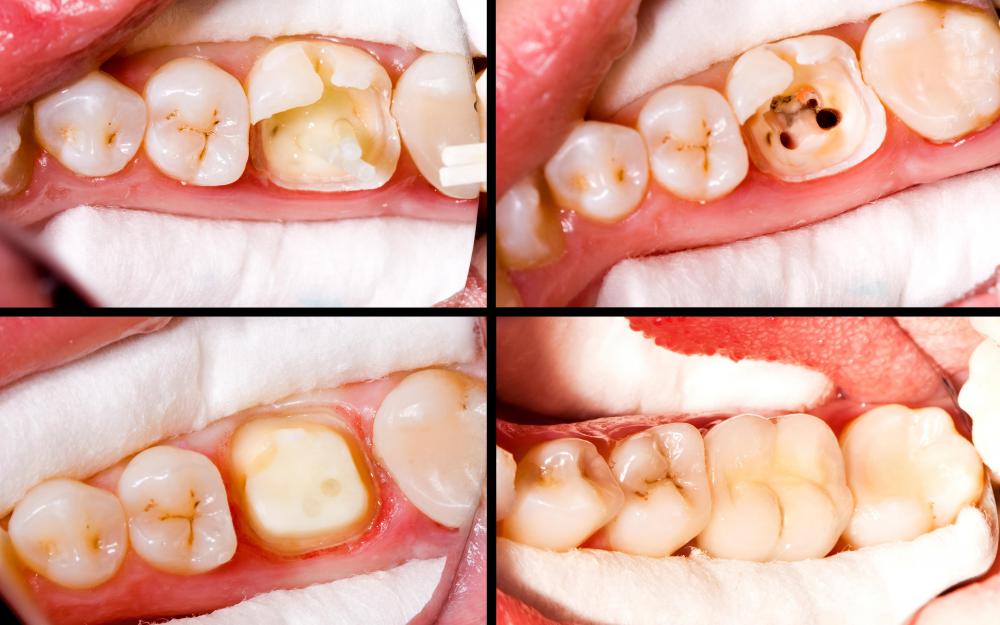At WiseGEEK, we're committed to delivering accurate, trustworthy information. Our expert-authored content is rigorously fact-checked and sourced from credible authorities. Discover how we uphold the highest standards in providing you with reliable knowledge.
What Is the Treatment for Dental Caries?
The treatment for dental caries, or cavities, depends on the severity of the condition. Fillings, crowns, and root canals are all used as treatment for dental caries. A dentist will evaluate the extent of the damage and recommend the best procedure.
Dental caries are holes in the tooth enamel caused by a buildup of plaque, which is a combination of saliva, bacteria and food particles. If not removed regularly through a combination of brushing and flossing, plaque will cause dental carries.

Initially, dental carries produce no symptoms. The holes may too small to see. Many times, they are only discovered during a routine dental exam. Once the damage has extended through the tooth and exposed the nerves, pain is experienced, especially while eating foods that are sweet, hot, or cold.
The treatment for small dental caries is to place a filling in the hole. Silver alloy, porcelain, gold, and composite resin are common materials used. Before the procedure, the area will be numbed with a local anesthetic. Gas is available to sedate patients who are nervous. The dentist first removes the decayed portion of the tooth, and then fills the hole with the chosen material.

More extensive dental caries may require a crown. Numbing or sedation is also used during the placement of a crown. The damaged portion of the tooth is removed, and a crown is fitted over the rest of the tooth. Crowns may be made of gold, porcelain, or porcelain and metal. The crown is shaped to look like the damaged part of the tooth.
The treatment for dental caries that have destroyed the nerve is a root canal. After numbing and sedation, a hole is drilled in the tooth. Through the hole, the dentist removes the pulp and nerve. The tooth is then filled with a sealant. A crown may be placed if there is extensive damage to the outside of the tooth.

Treatment for dental caries can be painful and expensive. There are several ways to prevent caries from occurring. Teeth should be brushed and flossed thoroughly at least twice a day. Snacks should be limited, particularly those containing carbohydrates. Fluoride rinses can help strengthen tooth enamel.
If dental caries are not treated, an abscessed tooth may develop if bacteria enter the hole. Symptoms of an abscessed tooth include severe pain, fever, red and swollen gums, foul breath, and swollen glands in the neck. Treatment begins with the drainage of the abscess. This can be done by lancing the abscess, performing a root canal, or removing the tooth. Antibiotics are then given to clear up the infection.
AS FEATURED ON:
AS FEATURED ON:













Discuss this Article
Post your comments